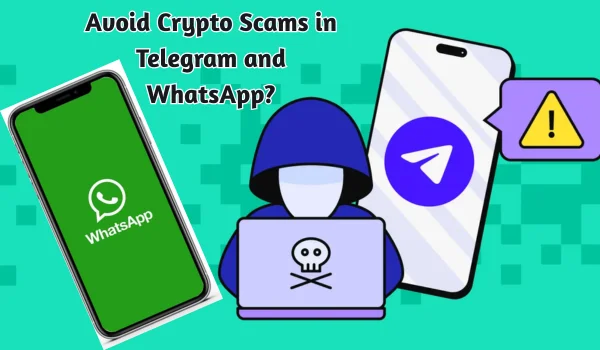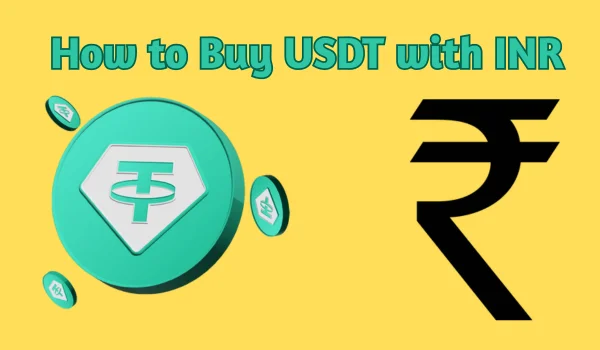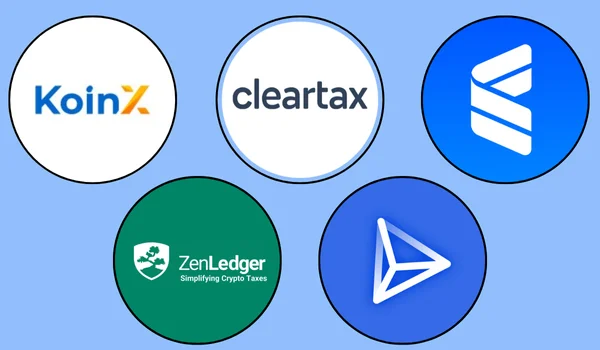Cryptocurrency adoption is rapidly growing in India, especially among the youth. Platforms like Telegram and WhatsApp are popular for joining crypto communities, getting trading signals, and learning about airdrops. However, these platforms have also become a breeding ground for crypto scams, fraudulent schemes, and phishing attacks.
With more than 400 million WhatsApp users and over 100 million Telegram users in India, scammers are aggressively targeting Indian investors—especially new users and non-tech-savvy individuals.
This guide will help you identify red flags, understand scam patterns, and learn how to protect your funds and personal data from fraudsters.
📌 Why Telegram and WhatsApp Are Used for Crypto Scams
| Reason | Explanation |
|---|---|
| Anonymous Identity | Users can create fake profiles with no verification. |
| Wide Reach | Groups and channels with thousands of members can be set up instantly. |
| Lack of Regulation | No moderation of financial claims or investment advice. |
| Trust-Based Traps | Many scams pose as “trusted admins,” “investment advisors,” or “airdrop bots.” |
🚨 Common Types of Crypto Scams on Telegram & WhatsApp
| Scam Type | How It Works | Red Flags |
|---|---|---|
| Fake Airdrops | Promises free tokens in return for wallet access or upfront fees. | “Send 0.01 ETH to claim 10 tokens.” |
| Investment Doubling Schemes | Claims of doubling your crypto in hours or days. | “Send ₹10,000 in BTC, get ₹20,000 back.” |
| Phishing Links | Links shared to fake sites that mimic wallets or exchanges. | Misspelled domains, urgent messages. |
| Impersonation of Admins | Scammers pretend to be moderators or influencers. | “Hi, I’m official Binance admin.” |
| Pump & Dump Groups | Hype around low-volume coins to trap buyers before dumping prices. | “Buy now, price will 10x in 5 minutes.” |
| Malicious Bots | Telegram bots asking for private keys or seed phrases. | “Verify wallet ownership.” |
🧠 Real-Life Case Studies from India
1. Telegram Scam Targeting Indian Investors (2023)
A fake “Binance India” group was created on Telegram with over 50,000 users. Victims were tricked into investing in a made-up coin called BNI Token with promises of huge profits. Once the money was collected, the scammers deleted the group and vanished.
2. WhatsApp Scam Using Fake KYC Links (2024)
Users received a message pretending to be from CoinDCX asking for KYC re-verification via a fake website. Those who clicked lost access to their accounts and crypto holdings.
🛡️ How to Avoid Crypto Scams on Telegram & WhatsApp

✅ 1. Never Share Your Seed Phrase or Private Key
- No genuine platform or admin will ever ask for your seed phrase. If someone does, it’s a scam—100% of the time.
✅ 2. Verify Admin Identities
- If someone claims to be an exchange admin or influencer:
- Check the official website or Twitter for their verified handle.
- Never trust someone just because they have the logo as their profile picture.
✅ 3. Double-Check Every Link
- Many scams rely on fake domains like:
- binánce.com instead of binance.com
- wazírx.in instead of wazirx.com
- Always verify links by:
- Checking spelling carefully.
- Looking for HTTPS lock symbol.
- Searching the website on Google instead of clicking directly.
✅ 4. Don’t Fall for Unrealistic Returns
- Anyone promising to double your crypto or offer 10x in a week is trying to scam you. Crypto is volatile, but no one can guarantee profits.
✅ 5. Use Official Apps and Communities
- Join official Telegram or WhatsApp groups through:
- Verified links from websites like binance.com, coindcx.com, etc.
- Avoid unofficial signal or pump groups.
✅ 6. Enable Two-Factor Authentication (2FA)
- Secure all your exchange accounts and wallets with 2FA (Google Authenticator, SMS OTP, or Authy) to prevent unauthorized access.
✅ 7. Block and Report Suspicious Users
- Don’t engage with strangers sending you unsolicited offers. Block and report them immediately.
📱 Safe Telegram and WhatsApp Practices
| Practice | Benefit |
|---|---|
| Join Only Verified Groups | Reduce exposure to fake admins and scams |
| Disable Auto-Download Media | Avoid malicious files or malware attachments |
| Mute or Leave Spammy Groups | Less chance of engaging with fake investment offers |
| Avoid Giving Out Phone Numbers | Protects from being added to random scam groups |
🧾 What to Do If You’re Scammed
- Stop further communication.
- Take screenshots of the chat and wallet address.
- Report the group/user to Telegram or WhatsApp.
- File a cybercrime complaint at cybercrime.gov.in.
- Notify the crypto exchange’s support team immediately.
⚠️ Key Differences Between Genuine and Scam Groups
| Indicator | Genuine Group | Scam Group |
|---|---|---|
| Admin Identity | Verified, linked to official accounts | Unknown, no verification |
| Content Shared | Educational, updates, and support | Too-good-to-be-true offers |
| Frequency of Promotions | Minimal or none | Constant shilling of tokens/projects |
| Response Time | Timely, clear, and professional | Pushy, urgent, vague |
🧩 Final Thoughts
With India’s crypto market maturing, the threat of scams is also evolving. Telegram and WhatsApp are helpful tools for learning and engaging—but only when used carefully.
🔐 Your safety checklist:
- ❌ Never share wallet keys or login credentials.
- ✅ Always verify the authenticity of the group or message.
- ✅ Stick to regulated exchanges and official channels.
- ❌ Avoid high-return promises from unknown contacts.
In crypto, your wallet is your responsibility. Scammers exploit curiosity and greed. Stay alert, stay skeptical, and always do your research before taking action.
💡 Pro Tip: Want help identifying legit crypto projects, wallets, or Telegram groups? I can provide a checklist or verification guide — just ask!





